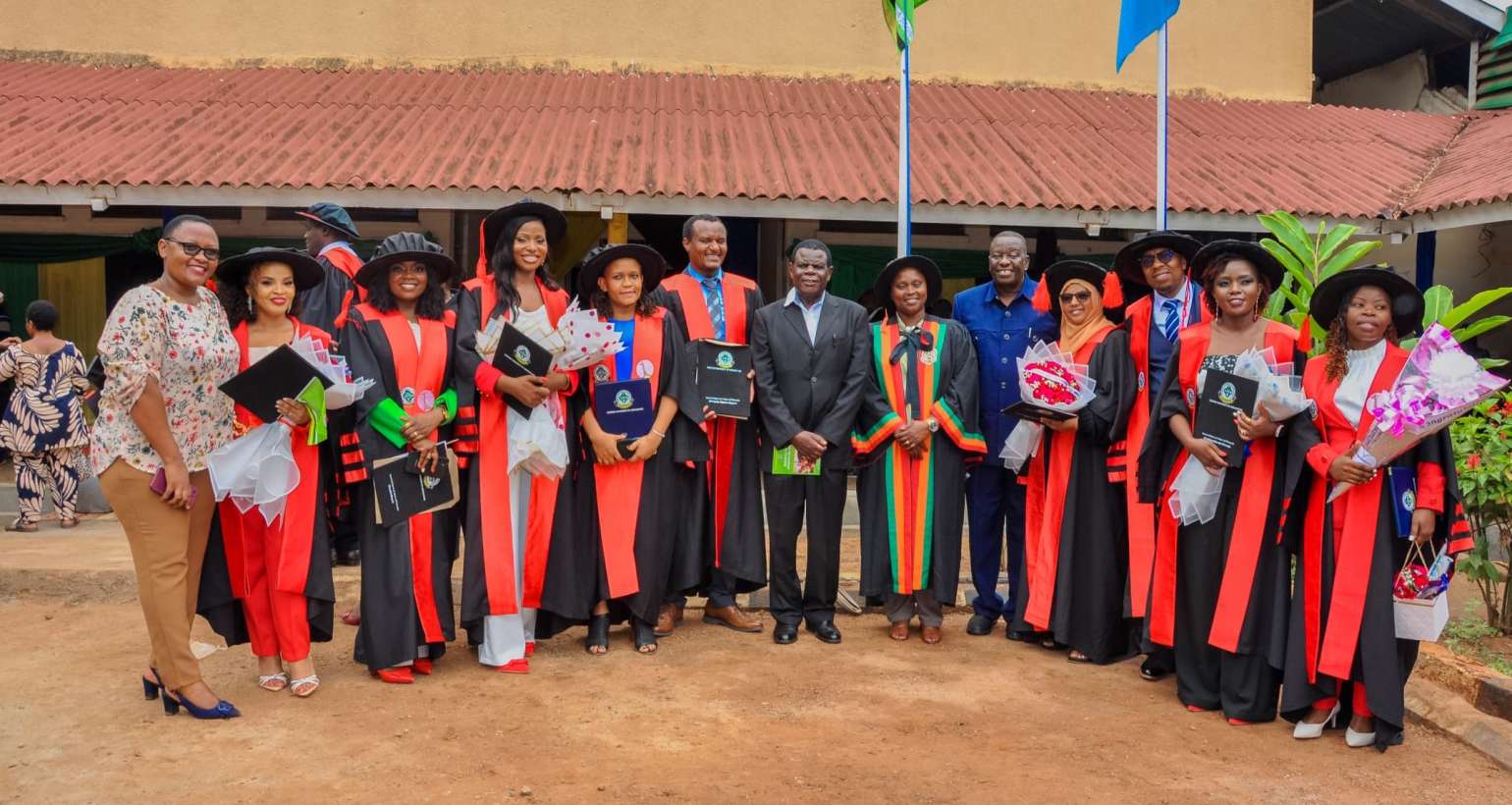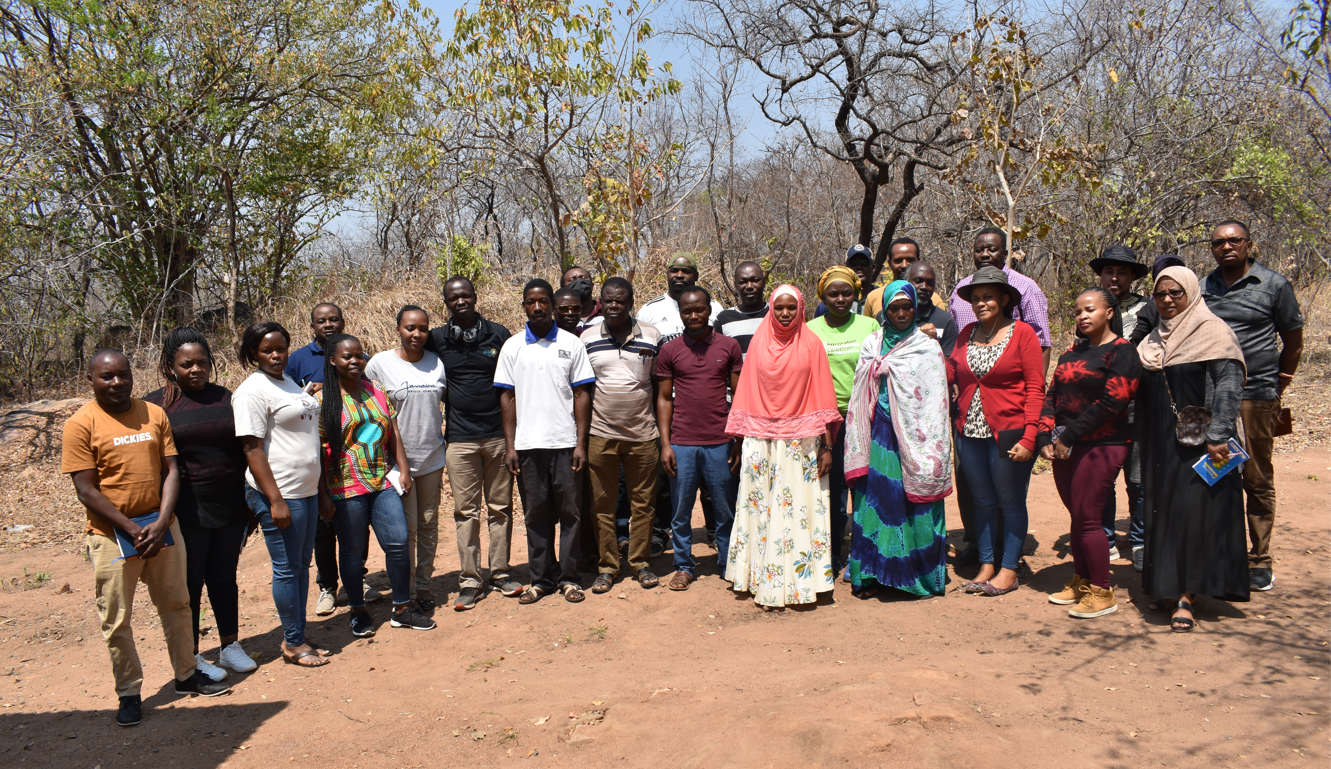By Christine Kalembe Mwanja
PhD student under REFOREST Programme at Sokoine University of Agriculture
The Department of Forest Biomaterials and Technology at the Swedish University of Agricultural Sciences (SLU) in Uppsala Sweden, undertakes training and research in forestry and forest industries. I had the opportunity to attend a wood science and technology course there.
The training programme was conducted from 17th January to 10th April 2022 and covered the following courses:
- Wood anatomy, chemistry and composition (hemicellulose, cellulose and lignin);
- Physical and mechanical properties of wood;
- Wood for bio-energy;
- Wood modification (cell bulking, chemical, acetylation and thermal);
- Micro-processing of cellulose, lignin and hemicellulose to generate nanocellulose (microfibrillatted cellulose), hydrogels, food additives and other products from lignin;
- Wood decay and degradation: types, mechanisms and wood-destroying insects;
- Wood protection including natural durability, laboratory and field tests, methods of impregnation, assessment of impregnation quality, wood preservative systems and biocides used for chemical wood preservation; and
- Structure and composition of bamboo, uses and properties.
The training was delivered through lectures, seminar presentations, assignments and student-lecturer discussions. Among the instructors were guest speakers from leading wood industries and research organizations. The speakers shared knowledge and experiences on wood as a competitive, eco-friendly and renewable material. The experiences shared were inspiring. The training equipped me with practical (Figure 1 (a) & (b), knowledge and in-depth understanding of various aspects of wood. These were relevant to my PhD research.
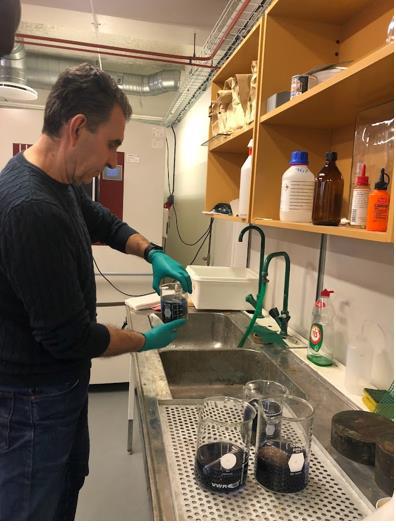
1 (a) Prof. Nasko demonstrating
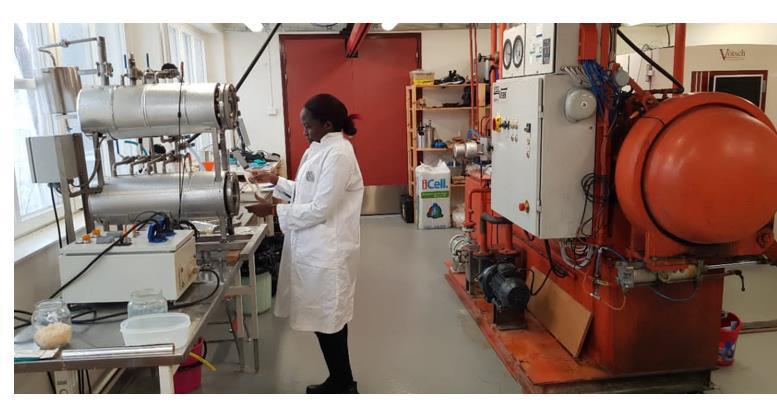
1(b) Christine conducting the preservation experiment
How to carry out the preservation experiment
Through the training Programme, I had the opportunity to undertake field excursions to a wood impregnation plant (Valbo Trä) and a pulp mill (Stora Enso) located in Skutsär, about 100 km North of Uppsala. Valbo Trä (a member of Swedish Wood Protection Association) produces impregnated timber to meet customers’ needs and complying with environmental requirements. The plant also provides painted panels for building and exterior application.
Stora Enso (Figure 2a, b & c) produces recycled fibres (for online shopping packaging) and pulp (as raw material for other industries involved in manufacturing of hygienic products such as diapers). The mill uses recycled and fresh fibres sourced from sustainably managed and regenerative forests.
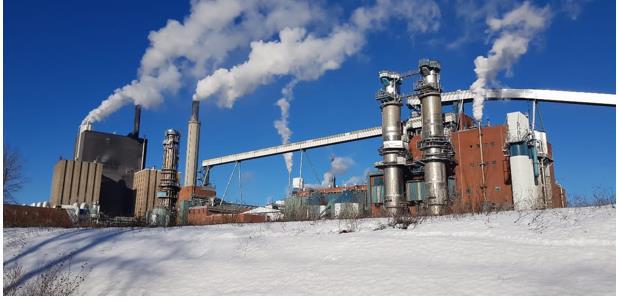
2 (a) Store Enzo pulp mill
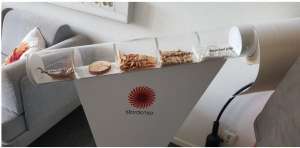
2 (b) Different stages of production at the pulp mill
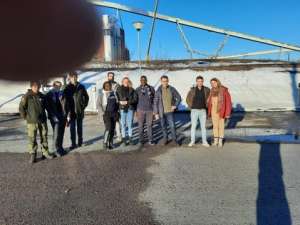
2 (c) Students outside the pulp mill


